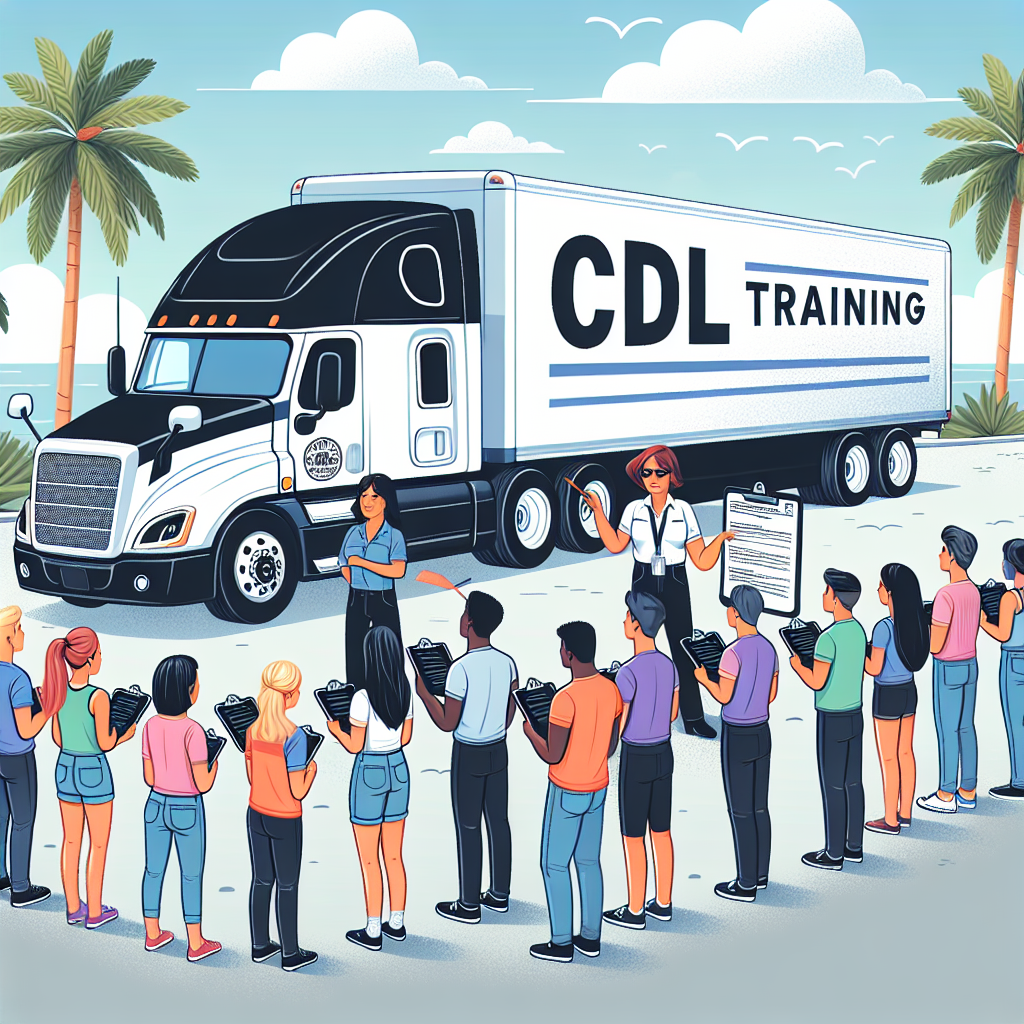Deciding how to pay for commercial driver’s license (CDL) training can be confusing, but understanding employer options clears the path quickly. What Trucking Companies Will Pay For Cdl Training In Florida: Expert Tips and Strategies is a practical guide to the typical payments and tradeoffs companies offer, what you should expect in contracts, and how to choose the best path to start or advance your driving career in Florida.
Typical company-paid CDL training options in Florida
Many carriers structure CDL sponsorship in a few predictable ways. Knowing these options helps you compare offers and avoid surprises.
- Full sponsorship: The carrier pays tuition, licensing fees, and often a training stipend; you usually sign a work-for-payback contract.
- Conditional reimbursement: The company front-loads training costs and reimburses you over time through payroll deductions or bonuses after you complete a set service period.
- Paid training wage: You attend company-run or partnered schools and receive hourly pay during classroom and road training (often lower than regular driver pay).
- Loan or advance programs: Some firms advance training costs as a loan that is repaid via paycheck deductions.
- Referral or signing bonuses: Instead of paying training directly, carriers may offer a bonus once you complete training and stay employed for a set time.
What expenses are commonly covered?
Beyond tuition, carriers sometimes cover:
- CDL permit and testing fees
- DOT physicals and drug screening
- Training materials and endorsements (e.g., HazMat)
- Temporary housing or per diem during long training sessions
- Biometric or simulator training costs
How companies structure payback and what to watch for
Contracts are the heart of the arrangement. Common clauses include payback duration (often 6–24 months), prorated repayment if you leave early, and conditions that void reimbursement (no-call/no-show, failed tests). Before signing:
- Request the full contract and a plain-language summary of repayment terms.
- Ask whether training pay counts toward overtime or benefits eligibility.
- Clarify if bonuses are guaranteed or discretionary.
- Find out whether endorsements obtained during training stay with you if you change carriers.
Florida-specific tips
Florida has a high demand for drivers serving ports, freight brokers, and distribution centers. This demand can translate into more flexible training arrangements and competitive bonuses, especially in metro hubs like Miami, Jacksonville, and Tampa. Local carriers may prefer hiring drivers already licensed in-state to reduce paperwork, so check whether an employer will assist with transferring or obtaining a Florida CDL.
Strategies to maximize value from company-sponsored training
Use these tactics to get the best deal:
- Compare multiple offers side-by-side: calculate total cost covered, repayment terms, and guaranteed wages during training.
- Negotiate start dates and allowance for endorsements that add value to your resume.
- Keep copies of all receipts and completion certificates—these are often required for reimbursement.
- Consider private schools with tuition reimbursement if they offer better outcomes or faster job placement.
- Ask current drivers about real-world training quality and whether the company honors its written promises.
For clarity on federally required training standards for new drivers, consult the Entry-Level Driver Training (ELDT) rules maintained by the Federal Motor Carrier Safety Administration: FMCSA Entry-Level Driver Training requirements.
Thinking broadly about career development can also help; some approaches to learning and paradigm-shifting ideas can inform how you evaluate nontraditional training offers. For an example of unconventional theoretical perspectives that encourage broad thinking about systems and learning, see groundbreaking theories of Nassim Haramein and Max Planck on bridging the universe’s mysteries.
Quick checklist before you accept a sponsorship
- Obtain the full written contract and read the payback clause closely.
- Confirm what’s paid directly versus reimbursed.
- Ask about wages during training and how that counts toward benefits.
- Check the carrier’s safety rating and reputation among drivers.
- Verify ELDT-compliant training if you’re an entry-level driver.
FAQ
Q: Will every trucking company in Florida pay for CDL training?
A: No. Some will cover all costs, others provide partial reimbursement or offer paid training wages. Independent carriers and smaller companies may offer different incentives than national fleets.
Q: What is a payback contract and is it enforceable?
A: A payback contract requires you to repay training costs if you leave before a specified period. These are generally enforceable if fair and clearly disclosed, but terms vary—get legal or career counseling if anything seems excessive.
Q: How long until I start earning full driver pay after company-sponsored training?
A: That depends on the carrier—some pay full wages immediately after licensing; others require a probationary period. Confirm timing before you begin training.



